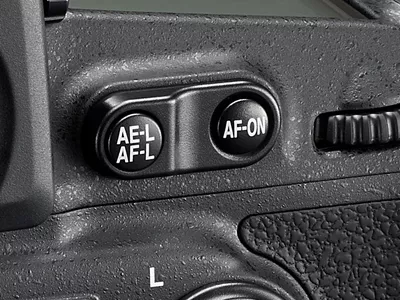
Acquire Clear Articulation in Russian Language

Acquire Clear Articulation in Russian Language
Although it may seem a bit daunting in the beginning, the Russian alphabet is not the hardest alphabet in existence (I’m looking at you,Japanese ). Consisting of 33 letters – just 7 more than the Latin alphabet – it uses the Cyrillic script to write the Russian language. And you know what’s the best thing about it? Almost all the words in Russian can be pronounced the same way they are written.
To put it simply, once you master the Russian alphabet, you’ll know how to pronounce the majority of the Russian words . So let’s uncover the mysteries of this alphabet together so you can move on to more important things like… learning Russian with Mondly .
A short history of the Russian language and the Russian alphabet
As you already know, Russian is an East Slavic language and one of the world’s major languages: it is one of the six official United Nations languages and the 8th most spoken language in the world with a total of 260 million speakers . Moreover, Russian the official language of Russia, Belarus, Kazakhstan and Kyrgyzstan and the unofficial lingua franca in Ukraine and many other former Soviet countries.
Russian and the other East Slavic languages (Ukrainian, Belarusian) were not very different from each other until the Middle Russian period (late 13th century to the 16th century). As a matter of fact, the term “Old Russian” is generally used to describe the East Slavic languages in use before the Middle Russian period.
Russian has been greatly influenced by Old Church Slavonic and – since the westernizing policies of Tsar Peter I the Great in the 18 century – by the languages of western Europe . Then, the 19th-century poet Aleksandr Pushkin determined the further development of the Russian language we know today. His writings, in which he combined the colloquial and Church Slavonic styles, were decisive in establishing the best style for literary use.
The Cyrillic script
The Cyrillic script is the national script in various Slavic-, Turkic- and Iranic-speaking countries in Eastern Europe, the Caucasus, Central Asia, and Northern Asia.
The Early Cyrillic script was commissioned by the Bulgarian Tsar Simeon I the Great in the 9th century AD to replace the Glagolitic script and became official shortly after, in 893. It is derived from the Greek uncial script, augmented with letters from the older Glagolitic alphabet and was named in honor of the two brothers, Saints Cyril and Methodius, who created the Glagolitic alphabet.
The Cyrillic script used in Russia was heavily reformed in the early 18 century by Peter the Great. Several archaic letters were completely removed and others were personally designed by Peter the Great himself. Thus, the updated letters became closer to those of the Latin alphabet.

“Red Square, Moscow, Russia” by Aurelien Romain©
Understand how to pronounce the Russian alphabet
There are 33 letters in the Russian alphabet. 10 vowels (а, э, ы, у, о, я, е, ё, ю, и) , 21 consonants (б, в, г, д, ж, з, к, л, м, н, п, р, с, т, ф, х, ц, ч, ш, щ, and the consonantй which is sometimes a semivowel) and 2 pronunciation signs (the “soft sign” ь and the “hard sign” ъ).
This is the dictionary order of the Russian alphabet: А, Б, В, Г, Д, Е, Ё, Ж, З, И, Й, К, Л, М, Н, О, П, Р, С, Т, У, Ф, Х, Ц, Ч, Ш, Щ, Ъ, Ы, Ь, Э, Ю, Я.
If we were to compare the Russian alphabet to the English alphabet, we would have four groups of letters: letters that look and sound (almost) the same as in English, letters that sound the same but look different, letters that look the same but sound different and letters that have no English equivalent whatsoever.
Russian letters that are (almost) the same as in English
- А а sounds like “a” in “father” or “after”,
- Е е sounds like “ye” in “yes”,
- К к sounds like “k“ in “kept”, “kite” or “like”,
- М м sounds like “m” in “mother” or “mobile”,
- О о sounds like “o” in “bore” or “more” (without the ‘r’ sound),
- Т т sounds like “t” in “top” or “task”.
Russian letters that sound the same as in English (but look different)
- Б б sounds like “b” in “bad” or “blue”,
- Г г sounds like “g“ in “go” or “guard”,
- Д д sounds like “d” in “done” or “double”,
- Ё ё sounds like “yo” in “your”,
- Ж ж sounds like “s” in “usual”, “pleasure”, “measure” or “treasure”,
- П п sounds like “p” in “potato” or “compassion”,
- Ф ф sounds like “f” in “face” or “fact”,
- И и sounds like “ee” in “see”, “free” or “meet”,
- Й й sounds like “y” in “toy” or “oyster”,
- Л л sounds like “l” in “lamp” or “chill”,
- Ц ц sounds like “ts” in “sits” or “that’s”,
- Ш ш sounds like “sh” in “shrimp”,
- Щ щ is a softer version of Ш and it sounds like “sh” in “shoes”,
- Э э sounds like “e” in “met” or “edit”,
- Ю ю sounds like “you” or “use”,
- Я я sounds like “yu” in yummy or “ya” in “yard”.
Russian letters that look the same as in English (but sound different)
- В в sounds like “v” in “van” or “voice”,
- З з sounds like “z” in “zoo” or “zodiac”,
- Н н sounds like “n” in “no” or “noon”,
- Р р sounds like “r” in “run” or “rest” (but rolled).
- С с sounds like “s” in “stone” or “sale”,
- У у sounds like “oo” in “tool”,
- Ч ч sounds like “ch” in “chat” or “church“,
- Х х sounds like “ch” in “loch”,
- Ы ы sounds like “i” in “ill” but with a “rounder” pronunciation (said with your tongue slightly back in your mouth).
Russian letter with no English equivalent
- Ь – this is called the “soft sign” and it is used to modify the pronunciation of the preceding consonant by making it soft (palatalized),
- Ъ – this is called the “hard sign” and it prevents palatalization* of the preceding consonant or acts like a “silent back vowel” that separates a succeeding “soft vowel” (е, ё, ю, я, but not и) from a preceding consonant
*palatalization – pronouncing a consonant in a way in which part of the tongue is moved close to the hard palate.
Phew! That may seem a bit overwhelming right now, but you’ll eventually get the hang of it. To help you even more, we put together a table so you can have all this information “at a glance”. Here’s the pronunciation of the Russian alphabet in a nutshell:

Russian alphabet pronunciation
Russian lesson no. 1: rules
Russian is definitely not the hardest language you can study. As you already saw, once you get to know it, the Russian alphabet seems quite friendly. Languages like Chinese, Japanese, Korean or Arabic , on the other hand, are way harder to master. Besides, once you learn the alphabet, you will already be able to read in Russian – a great boost for your motivation!
So let’s see what are some general rules and characteristics of the Russian language to help you get started:
there are three tenses in Russian – past, present, and future;
each verb has two aspects: perfective and imperfective;
Russian has three genders – feminine, masculine, or neuter – indicated by the spelling at the end of the word;
Russian has six cases: nominative, accusative, dative, genitive, instrumental and prepositional
Russians don’t capitalize the names of the days of the week (or months) or words indicating nationality;
the standard sentence structure is subject-verb-object, but the word order may vary;
Russian is mainly phonetic and it is only the complex stress system complicates the pronunciation of Russian words;
however, the stress system is not very strict and stress is movable.
Study Russian in just 10 minutes a day
It can be really tricky to master Russian pronunciation if you don’t actively live in Russia. But with Mondly, the award-winning language learning app, you’ll teach yourself Russian using a unique, fast and highly efficient learning method.
Using a conversation-focused curriculum organized into bite-sized lessons and advanced technologies like chatbots with speech recognition, Mondly helps you make the connections yourself and speak like a true Russian fast.
Get Mondly now and speak your first Russian words today!
Also read:
- [New] How To Post Photos and Videos on Twitter From Smartphones
- [New] In 2024, Best Study Partners in History Top 10 Youtubers & Channels
- 15 Ways To Say Goodbye In German
- 2024 Approved Free Game Music Websites – A Comprehensive Guide
- 6 Proven Ways to Unlock Itel P55 Phone When You Forget the Password
- Alluring Articulations From France's Land of Love
- Analyzing Mondly's Educational Framework
- Become Fluent in Tagalog Fast and Easy!
- Full Solutions to Fix Error Code 920 In Google Play on Motorola Moto G14 | Dr.fone
- Guide to Repairing the Missing Helper.dll File Notification
- How To Teleport Your GPS Location On Samsung Galaxy S21 FE 5G (2023)? | Dr.fone
- Mastering Your Home Network: The Ultimate Guide to the Netgear Nighthawk X4 Mesh Experience
- New Year, Language Learning Goal!
- Ways to trade pokemon go from far away On Oppo A1 5G? | Dr.fone
- Title: Acquire Clear Articulation in Russian Language
- Author: Christopher
- Created at : 2024-12-27 21:43:57
- Updated at : 2025-01-03 16:41:33
- Link: https://mondly-stories.techidaily.com/acquire-clear-articulation-in-russian-language/
- License: This work is licensed under CC BY-NC-SA 4.0.